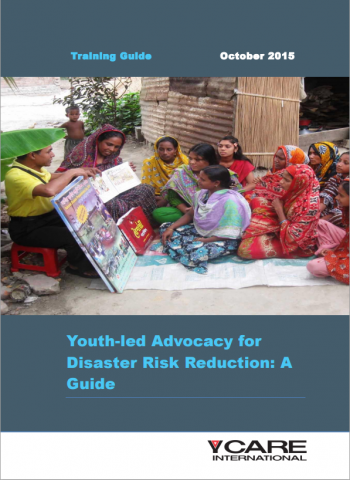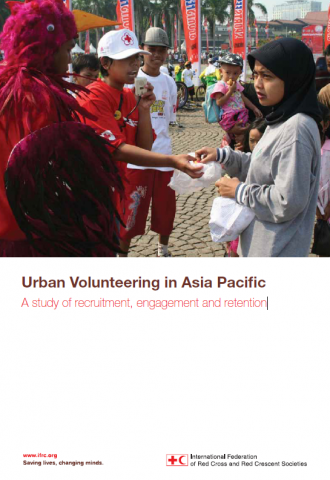Urban Volunteering in Asia Pacific: A study of recruitment, engagement and retention


Strategy 2020 and the Federation’s Volunteering Policy 2011 reaffirm volunteering as being fundamental to the organisation’s vision and values. Each National Society depends upon volunteers to help vulnerable people in everyday programs and crisis situations. However, the opportunities for humanitarian action are evolving. With over half of the world’s population living in fragmented and diverse urban areas, sustainability increasingly depends on the relevance of an organisation’s services and its capacity to develop a capable, diverse and effective volunteer base.
In this regard, a key challenge for humanitarian organisations is that little is known about the composition, motivations and expectations of urban volunteers outside the few countries where comprehensive household surveys of volunteering exist. In 2013, the IFRC (Asia Pacific Zone) initiated research designed to fill this empirical gap.
This study provides descriptive evidence from seven National Red Cross and Red Crescent Societies in 13 cities in the Asia Pacific region. The results suggest that National Societies wanting to increase diversity and, at the same time, maximise scarce resources could benefit from more diverse strategies, including strategies to recruit “senior citizens”. The finding that length of service and training independently lift engagement suggests, moreover, that strategies that foster the retention of existing volunteers through better training and support could enhance sustainability more effectively than strategies focused on lifting volunteer numbers.
– IFRC 2014
